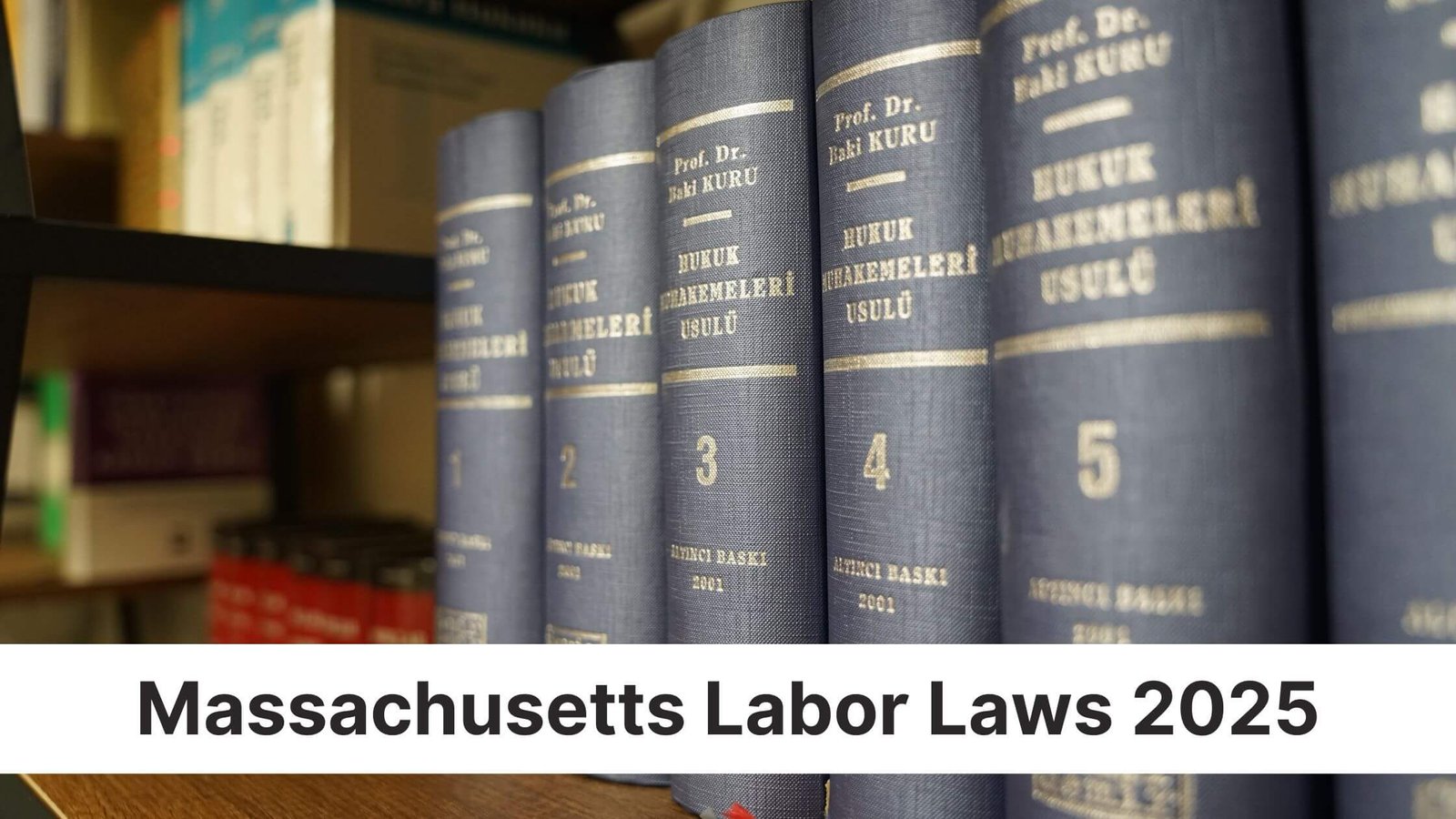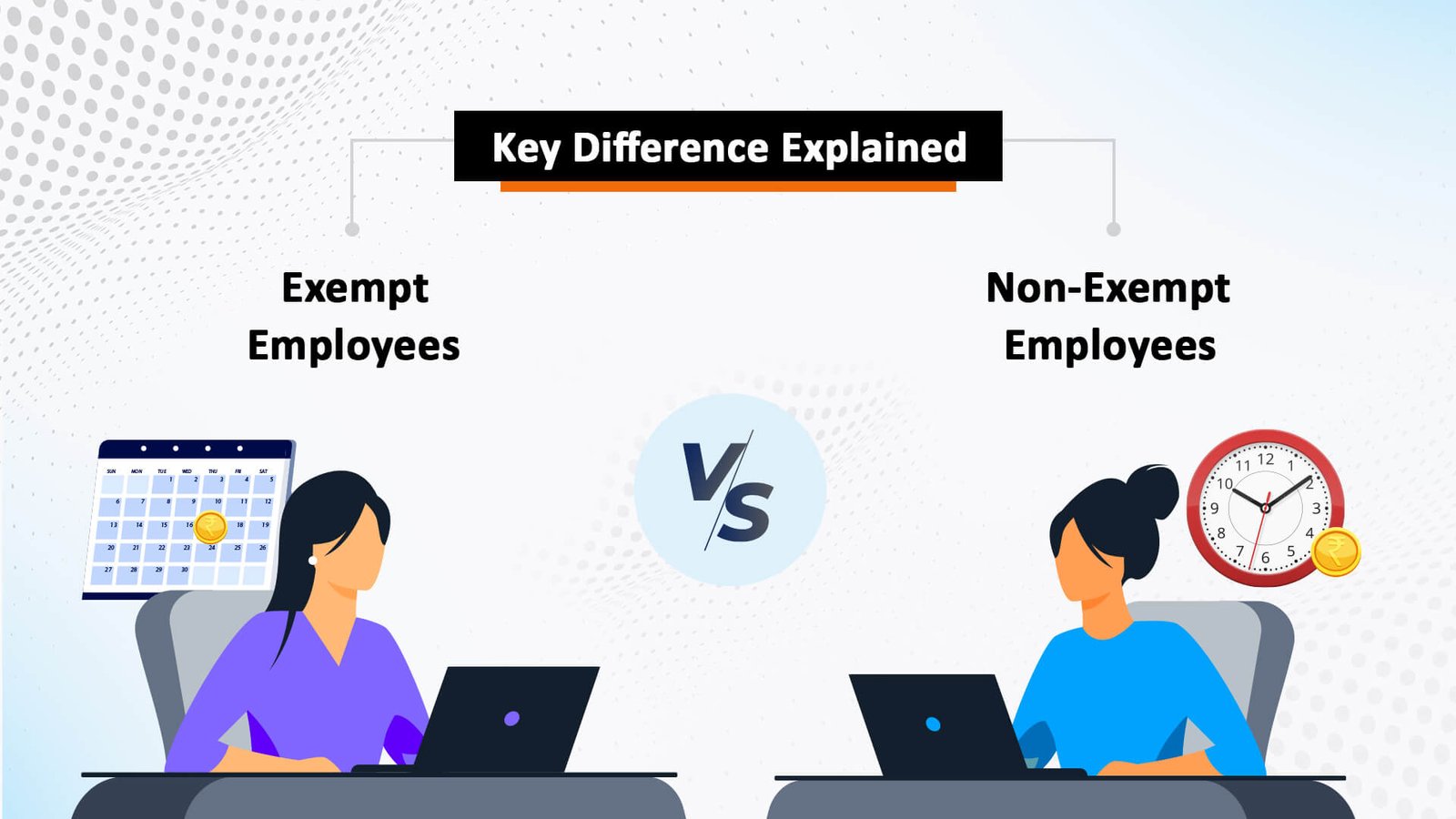There are employment laws in place throughout the USA that are intended to protect employees from various forms of workplace discrimination, hazardous workplaces, and illegal labor practices. There are many State of Massachusetts labor laws, such as the Fair Labor Standards Act (FLSA), Title VII of the Civil Rights Act, and the Occupational Safety and Health Act (OSHA), that offer protection.
Massachusetts is often considered to be an employee-friendly state. In addition to such federal protection, the state has its own more stringent rules to guard against discrimination, ensure a minimum wage, and protect safe workplaces.
Standard Working Hours And Wages
Massachusetts work schedule laws are designed to guarantee that workers receive fair pay for their labor, while Massachusetts labor laws overtime rule protects employees by ensuring they are fairly compensated when they work beyond the standard 40-hour workweek.
Minimum Wage
In Massachusetts, the minimum wage is set at $15 per hour, ensuring workers receive fair compensation for their labor. This rate applies to nearly all employees in the state, providing a strong baseline for earning standards.
However, there are a few exceptions. The following groups are not covered by the standard minimum wage:
- Agricultural workers.
- Individuals undergoing training in non-profit or educational organizations.
- Outside salespeople.
Currently, there are no scheduled increases to the Massachusetts minimum wage. By law in Massachusetts, the minimum wage must always remain at least $0.50 higher than the federal minimum wage, which is currently $7.25 per hour.
Overtime Pay
In Massachusetts, employers must pay overtime of 1.5 times an employee’s regular pay for overtime working more than 40 hours in a single workweek. While some states have a daily overtime threshold, Massachusetts does not have different rules regarding that; it simply determines overtime pay according to the number of hours worked in a week.
Executive, administrative, or professional employees, paid more than $80 per week.
Also, Massachusetts isn’t one of those states that lets your employer offer comp.
Tipped Wages
In Massachusetts, the tipped minimum wage, also known as the service rate, is set at $6.75 per hour. Employers are required to make up any difference between the service rate and tips so that employees earn at least the standard minimum wage of $15 per hour.
Labor laws in Massachusetts allow tip pooling, which enables service staff to share tips among themselves. However, tips cannot be shared with management, supervisors, or business owners, ensuring that gratuities go directly to the employees who provide the service.
Meal And Rest Breaks
Massachusetts labor laws break the rules that require employees working 6 or more hours in a shift to receive at least a 30-minute meal break. During this break, employees are free to use their time as they wish, including leaving the workplace.
Employers are not required to pay for meal breaks, but they can require employees to take them. If an employee chooses to work through their meal break, however, they must be compensated for that time.
Employee Compensation And Benefits
Massachusetts work schedule laws provide detailed protections and benefits for employees, including final paychecks, reporting time, employee compensation, and more.
Pay Reporting
Employees who show up to work for at least 3 hours but are not required to work must still be paid at least 3 hours at the minimum wage.
Employee Compensation
In order to pay for medical bills connected to work-related injuries, all Massachusetts businesses must offer employee compensation insurance.
A copy of the employer’s initial report of an injury or death must be sent to the employee and submitted to the insurance and the Department of Industrial Accidents (DIA) in order to initiate a claim.
These rules make businesses responsible for workplace safety and equitable compensation while guaranteeing that workers receive the right benefits and protection.
Workplace Safety And Health
Employers in the private sector in Massachusetts are clearly covered under OSH Act. To protect workers, the law imposes a number of obligations on companies.
The following requirements must be followed by employers under the OSH Act:
- Observe all OSHA guidelines and standards.
- Maintain the health and safety of the workplace.
- Provide workers with equipment and tools that are safe.
- Provide all employees with enough safety training.
Leave Laws In Massachusetts
There are times when employees need to take time off to get better when sick, bring a new child into the world, take care of a family member, or manage any number of critical personal issues.
Under Massachusetts Labor Laws, qualified employees are entitled to take job-protected leave while they meet these needs, without the concern of losing their jobs.
Leave Types that must be provided by Massachusetts Employers:
| Leave Type | Description |
| Sick and Safe Leave | Employers with 11 or more employees must provide 1 hour of paid sick leave. Smaller employers must offer unpaid leave the cover illness, healthcare visits, etc. |
| Voting Leave | Employees in certain industries (manufacturing, mechanical, retail, etc.) are entitled to take leave from work to vote. |
| Memorial Day, Veterans Day Leave | Veteran employees receive leave to observe these significant holidays. |
| Parental Leave | Massachusetts provides 8 weeks of job-protected leave for childbirth or adoption under the Massachusetts Parental Leave Act, enforced by MCAD. |
| Jury Duty Leave | An employee’s job is protected while serving on a jury. Employers must pay workers for the first 3 days of jury duty. |
| Paid Family and Medical Leave (PFML) | Eligible workers can take up to 26 weeks of job-protected leave for medical or family reasons. |
| Court Appearance Leave | Employees are entitled to leave to attend court appointments for legal matters. |
| Military Leave | Employees who are in the military are entitled to leave to meet their military service obligations. |
| Emergency Responder Leave | Emergency Responder employees are entitled to leave to fulfill their duties. |
Child Labor Laws
Massachusetts has strict regulations governing the employment of minors to ensure their safety, health, and education. Understanding these rules is essential for both employers and employees.
As per the Massachusetts labor laws minors’ rules, 16 and 17-year-olds only require supervision for dangerous jobs, whereas 14 and 15-year-olds must be watched over after 8 PM.
Minors are only permitted to work 3 hours on school days and 18 hours per week during the school year, whereas older teenagers are permitted to work up to 9 hours per day and 48 hours per week. Both groups may work longer hours while classes are not in session; nevertheless, 14 and 15-year-olds are only allowed to work 40 hours a week. Operating machinery, baking, building, handling explosives, and vocations involving dangerous situations are prohibited from work.
Taxes In Massachusetts
The personal income tax rate in Massachusetts is progressive, ranging from 5.00% to 9.00%. The state imposes a 6.25% sales tax and an 8% corporate income tax. Massachusetts does not impose local sales taxes, in contrast to many other states.
Tired of Payroll Mistakes? Simplify them with the Free Paystub Generator
Payroll errors can cost businesses and employees money, time, and confidence. Accuracy is more crucial than ever because Massachusetts labour laws encompass pay, taxes, and leave rules.
By producing expert, error-free paystubs that guarantee compliance and seamless payroll administration, Stub Creator simplifies the process.
Let the free paystub generator take care of the details so you can concentrate on expanding your company.
Curious Minds Also Ask
How many hours can you work without a break in Massachusetts?
Employees working more than 6 hours must get a 30-minute unpaid meal break; shorter breaks aren’t required.
Is the 7-minute rule legal in Massachusetts?
The 7-minute rule is legal if applied fairly and doesn’t consistently disadvantage employees.
What are the rights of workers in Massachusetts?
Employees are entitled to minimum wage, overtime, meal breaks, sick leave, and protection from discrimination in Massachusetts.
Does PTO have to be paid out in Massachusetts?
Unused, earned vacation time must be paid out when employment ends in Massachusetts.
What is the 90 23 law in Massachusetts?
Chapter 90, Section 23- Massachusetts labor law concerns driving with a suspended or revoked license, not employment.
How many hours can you work in one day in Massachusetts?
No daily limit exists, but overtime is due after 40 hours weekly, and some jobs require rest days.
What is Rule 17 in Massachusetts?
Rule 17 covers proper legal capacity for parties to sue or be sued in court.
Can I waive my lunch break in Massachusetts?
Yes, employees can waive their 30-minute meal break if both parties agree.
What happens if you get hurt at work in Massachusetts?
Injured employees can file for employee compensation, covering medical costs and lost wages.
How many sick days are required by law in Massachusetts?
Employers must provide up to 40 hours of sick leave yearly; paid if 11+ employees, unpaid if fewer.
How long does an employer have to pay you after termination in Massachusetts?
Fired employees must be paid the same day; if they resign, by the next payday.
What is rule 69 in Massachusetts?
Rule 69 allows enforcement of a court judgment through legal execution.
What is Kayden’s law in Massachusetts?
Kayden’s Law ensures that child safety takes priority in custody cases with abuse allegations.
What is Rule 11 in Massachusetts?
Rule 11 requires attorneys to certify filings as truthful and not for improper purposes.
How many breaks do you get in an 8-hour shift in Massachusetts?
One 30-minute unpaid meal break is paid in shifts over 6 hours; rest breaks aren’t provided.
Can I sue my employer for emotional distress in Massachusetts?
Employees can sue for emotional distress if linked to unlawful conduct like harassment or discrimination.
What is the going and coming rule in Massachusetts?
The going-and-coming rule excludes workers’ comp for commute injuries, with limited exceptions.
FAQ's
What is the minimum wage in Massachusetts for 2025?
+
As of January 1, 2025, the minimum wage in Massachusetts remains $15.00 per hour. For tipped employees, the minimum cash wage is $6.75 per hour, provided tips bring their total hourly earnings to at least $15.00.
Are employers in Massachusetts required to provide paid sick leave?
+
Yes. Under the Massachusetts Earned Sick Time Law, employers with 11 or more employees must provide up to 40 hours of paid sick leave per year. Employers with fewer than 11 employees must provide unpaid sick leave.
What are the overtime pay requirements in Massachusetts?
+
Non-exempt employees are entitled to 1.5 times their regular rate of pay for any hours worked beyond 40 in a workweek. Certain professions and industries may have exemptions under state and federal law.
Does Massachusetts require meal breaks for employees?
+
Yes. Employees working more than 6 consecutive hours are entitled to a 30-minute meal break. This break can be unpaid, provided the employee is relieved of all duties during that time.





